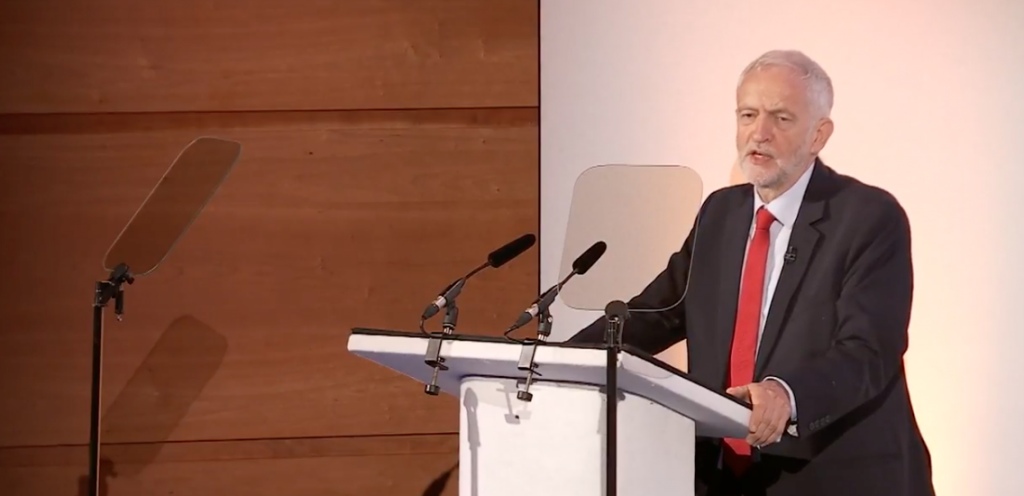
After more than 40 years of operation, DTVE is closing its doors and our website will no longer be updated daily. Thank you for all of your support.
Labour proposes free broadband for all and nationalisation of BT’s fixed line network
 The UK’s Labour party has announced its plans to nationalise BT’s fixed line network to provide free full-fibre broadband for the country should it win the upcoming general election.
The UK’s Labour party has announced its plans to nationalise BT’s fixed line network to provide free full-fibre broadband for the country should it win the upcoming general election.
The party has said that it will nationalise Openreach, along with parts of BT Technology, BT Enterprise and BT Consumer and that the move will be paid for by raising taxes on big tech firms like Google, Amazon and Facebook.
At a campaign event, Labour leader Jeremy Corbyn said: “It’s time to make the very fastest full-fibre broadband free to everybody, in every home in every corner of the country.”
He added that making broadband a public service will see the UK “lead the world in using public investment to transform our country, reduce people’s monthly bills, boost our economy and improve people’s quality of life.”
Speaking to the BBC, BT CEO Philip Jansen said that these are “very, very ambitious ideas” and that executing full fibre in the country “is not straight forward”.
He said: “It needs funding, it is very big numbers, so we are talking 30 to 40 billion pounds … and if you are giving it away over an eight year time frame it is another 30 or 40 billion pounds. You are not short of 100 billion pounds.”
Labour’s plans to nationalise broadband sits alongside its plans to do the same for rail, utility and water in the UK. Under the plan, all homes and businesses will receive free broadband
Labour said it would roll out the free broadband to all individuals and businesses by 2030, covering between 15-18 million premises within five years and saving the average person £30.30 per month.
It added that there will be a £15.3 billion one-off capital cost to deliver the full-fibre network, which currently only reaches 10% of the country. The current Conservative government has pledged £5 billion for fibre expansion.
As an effect of the announcement, BT shares have dropped by nearly 4% and TalkTalk said it has put the sale of its FibreNation business on hold as it considers the proposal’s implications.
Speaking on BBC Radio 4’s Today programme, shadow chancellor John McDonnell argued that the plan was “very much following the model of what has happened elsewhere,” and said that “we have to be ambitious if we’re going to compete in the global economy.”
Responding to the concerns of internet service providers, McDonnell said that “I’m sure that we’ll be able to ensure that we can come to an agreement” and that ‘British Broadband’ is only being proposed “because they’ve failed.”
He contrasted this to South Korea, where state investment has led to 98% of the country being covered by full-fibre broadband.
Conservative leader Boris Johnson, also speaking on the BBC, said that the plan was “fantastical” and a “crackpot scheme,” while former Conservative minister for broadband Ed Vaizey said: “It will end up costing taxpayers a huge amount of money and I suspect it will delay the rollout of super fast broadband hugely. I think they will achieve completely the opposite effect.”


